Our editors independently select these products. Making a purchase through our links may earn Well+Good a commission
Not All Superfood Supplements Are Bogus—These Are the 8 Best Options, According to Nutritionists
Which superfood supplements are *actually* nutritious, and which are just marketing BS? We asked the experts to find out.
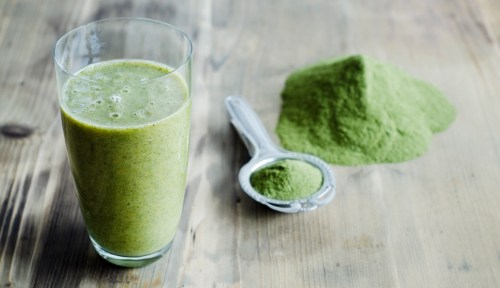
Let’s be honest: Sometimes eating a nutrient-dense, superfood-filled diet every day of the week seems like a pipe dream—a near-impossible feat, if you will. Thankfully, many, many superfood supplements exist to fill in the gaps. But, with so many to choose from, how’s one to know which superfood supplements are truly nutritious, and which are just marketed as such? We tapped a few dietitians to find out.
Experts in This Article
registered dietitian and specialist in sports dietetics
clinical dietitian and founder of Chelsea Nutrition
Best superfood supplements, at a glance:
- Athletic Greens, AG1, $99
- Ka’Chava, Superfood Meal, $70
- Kuli Kuli, Pure Moringa Powder, $30
- 2Before, Blackcurrant Pre-Workout, $50
- 365 Whole Foods, Organic Golden Milk Powder, $12
- Daily Element, Microgreen Powder, $75
- Nutrex Hawaii, Pure Spirulina Powder, $37
- Mud/Wtr, Balance Turmeric, $50
First, what’s a superfood?
The term “superfood” may be swirling around the wellness-sphere at an alarming rate, but NYC-based author and registered dietitian Jennifer Maeng, MS, RD, LD, CDN, CNSC, who is the founder of Chelsea Nutrition, points out that all foods grown on Earth can technically be considered superfoods. That’s because they’re naturally nutrient-dense, making them a superior diet choice.
Nowadays, though, many brands use the term “superfood” to make their nutritious snack, beverage, or supplement stand out from the other regular health foods on the aisle. And since it’s not super regulated, many brands have caught onto the ploy.
“The term ‘superfood’ is commonly used in marketing to refer to foods claimed to possess exceptional nutritional benefits,” Maeng explains, noting that it’s not widely revered by experts in the field. “Nevertheless, there are supplements that I believe could serve as a beneficial addition, acting as an insurance policy for our busy lives when it’s challenging to consume a diverse range of nutrient-dense foods.”
Keep in mind:
Superfood supplements are meant to do just that—supplement your diet. “It’s important to remember that while supplements can complement our nutritional intake, they should never replace a well-rounded and balanced diet,” Maeng says. “Always consult a dietitian before making significant changes to your dietary regimen.”
The best superfood supplements
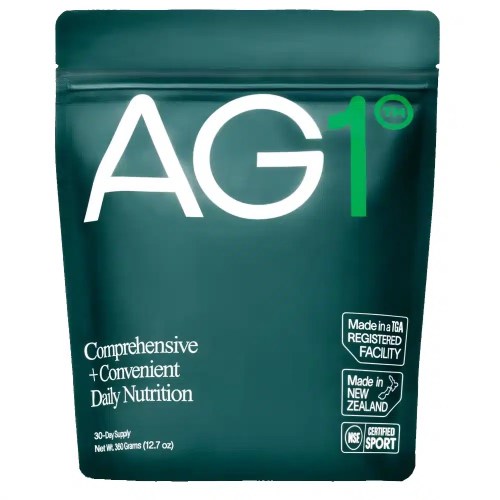
Athletic Greens, AG1 — $99.00
Athletic Greens is beloved by thousands of shoppers—and Maeng can understand why. “Think of AG1 more like a multivitamin mixed with powdered fruits, vegetables, and herbs,” she says. “If you don’t have a very diverse diet, I would suggest supplementing with products like AG1 while also trying to diversify your diet.”
That said, if you have GI issues or IBS, Maeng says to steer clear of AG1, as it may disrupt your system, and it can be difficult to know which ingredient you’re sensitive to. “I also would not suggest taking a high dose multivitamin daily when taking AG1,” she adds.
Pros:
- Contains plant-based superfoods, probiotics, vitamins, antioxidants, and more
- NSF-certified
- Versatile
Cons:
- Expensive
- Might be too potent for sensitive stomachs
- Requires a lot of whisking when added to water, otherwise gets chunky
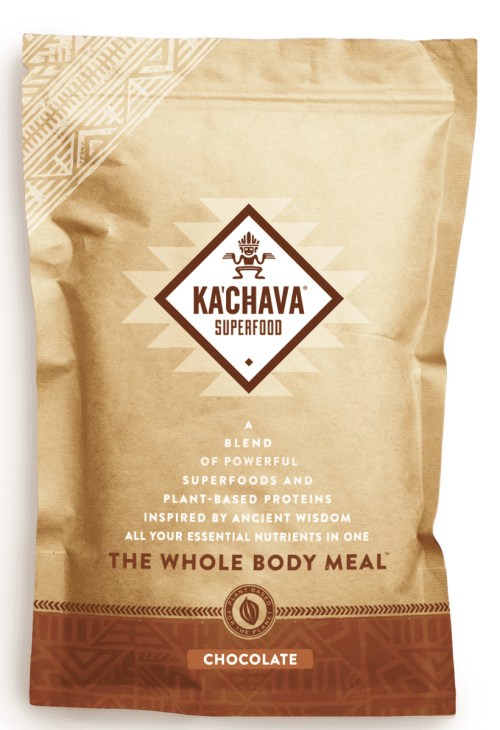
Ka'Chava, Ka'Chava Superfood — $70.00
Sold in five tasty flavors, the popular powder features over 85 superfood ingredients, including flax seeds, organic kale, chlorella, coconut flower nectar, reishi mushroom, and sacha inchi protein. Speaking of, Ka’Chava touts 25 grams of protein per serving—which is why Maeng is a fan.
“I recommend Ka’Chava to clients who could benefit from more protein and a variety of plant-based foods in their diet,” she says. “In order for you to have a healthy gut, you should be eating about 30 different types of plant-based foods weekly. If you are someone who eats the same breakfast every morning and orders the same lunch at work, products like this could be great for diversifying your diet.” Again, though, Maeng doesn’t recommend Ka’Chava for folks with GI conditions like IBS. “I would suggest working with a registered dietitian to see if this product is right for you,” she says.
Pros:
- Available in five flavors
- Contains plant-based superfoods, probiotics, vitamins, antioxidants, and more
- Also contains protein
- Versatile
Cons:
- Expensive
- Might be too potent for sensitive stomachs
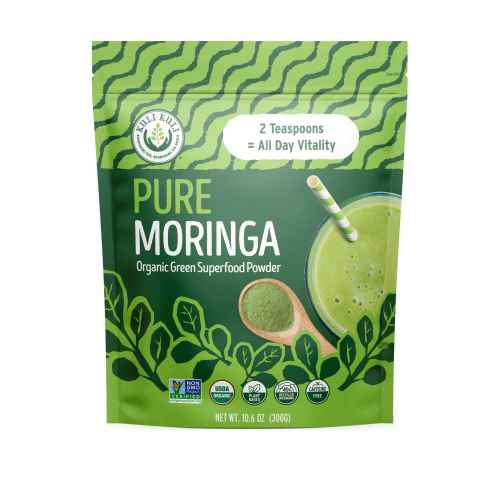
Kuli Kuli, Moringa Powder — $30.00
Just two teaspoons of this pure moringa powder will make you feel like you have wings. “I love the purity of this powder – nutritious, organic moringa leaf with nothing else added,” says Jenna Stangland, MS, RD, a registered dietitian for the Minnesota Wild, co-founder of A4 Health, and Pureboost ambassador. She notes that it’s one of the best superfood powders to get multiple nutrients in one serving—calcium, vitamin C, iron, and antioxidants to support bodily functions. “It is caffeine-free but because of the nutrient content, it feels like a rejuvenating burst in the morning after consuming.”
Pro Tip: Swap out your matcha for moringa! “I love it as an alternative to a matcha latte,” Stangland says. “Steam milk and add moringa and a little bit of honey for a new morning brew.”
Pros:
- 100 percent pure moringa
- Vegan, gluten-free, organic, caffeine-free, and non-GMO
- Supports multiple body functions
- Versatile
- Affordable
Cons:
- Taste is strong

2Before, Blackcurrant Pre-Workout — $50.00
According to Stangland, 2Before is another great pre-workout alternative. “I like 2Before because it is a nutrient-rich powder with purpose,” she says. “Blackcurrant has been well researched as an ergogenic aid for stamina in workouts by dilating your blood vessels to increase blood flow and oxygen to the working muscles.” Additionally, she points out the blackcurrants are antioxidant-rich (with anthocyanins, specifically), so they help reduce cellular damage, thus diminishing and preventing chronic inflammation.
“2Before makes it easy to consume a large dose of these anthocyanins without the expense of purchasing pints and pints of berries on a weekly basis,” Stangland adds. “This is an easy powder to mix in water to drink before a workout, or I like recommending it mixed with apple sauce for the extra carbohydrates—it’s an easy-to-digest snack before training.”
Pros:
- Great natural pre-workout
- Supports multiple body functions
- Caffeine-free options available
- Versatile and tasty
Cons:
- Expensive
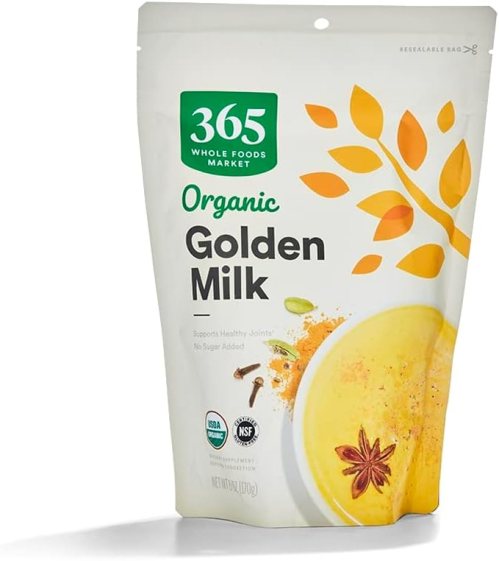
365 Whole Foods, Organic Golden Milk Mix — $12.00
As we head into fall, you might be hoping for a cozier approach to superfoods. If that’s the case, Maeng suggests the 365 Whole Foods Organic Golden Milk Mix. “This mix is particularly suitable for fall mornings or midday consumption, as it can be warming, and can enhance immune function and digestive health,” she says. “Comprising turmeric, maca, goji, cardamom, ginger, and black pepper, it creates a delicious and comforting drink when mixed with unsweetened almond milk.”
Pros:
- Supports multiple body functions
- Tasty and versatile
- Organic and NSF-certified
- Affordable
Cons:
- Taste is strong

Daily Elements, Microgreen Powder — $75.00
Looking to add microgreens to your daily diet without constantly munching on salads? “Daily Elements offers microgreen powder that has a flavor resembling a grassier version of matcha,” Maeng says. “Microgreens can contain up to 40 times more nutrients than their fully grown counterparts (think spinach, kale).” To incorporate the popular powder into your routine, simply blend it into the beverage of your choice.
Pros:
- Made entirely from microgreens grown in the US
- Contains seven servings of greens per scoop
- Supports multiple body functions
- Versatile
Cons:
- Expensive
- Tastes a bit grassy
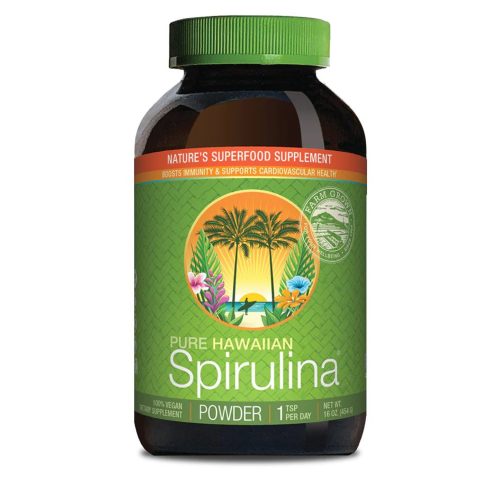
Nutrex Hawaii, Pure Spirulina Powder — $37.00
If you read the labels of the pre-made superfood juices you drink, you’re bound to find spirulina on the label—along with a whole lot of sugar. To curb the glucose spike, Maeng says to go straight for the nutrient with the Nutrex Hawaii Spirulina Powder.
“Spirulina, an algae that thrives in freshwater or saltwater, stands out for its richness in antioxidants, B vitamins, plant protein, and iron,” she says. “I often recommend it to clients with elevated cholesterol and triglyceride levels.” While you can drink it on its own, it doesn’t have much flavor, so many people like to add it to smoothies, dressings, and sauces.
Pros:
- 100 percent pure spirulina
- Supports multiple body functions
- Vegan, gluten-free, lactose-free, and non-GMO
- Versatile
Cons:
- Flavorless—try doctoring up in smoothies
ThirdLove Just Launched Bras That Help Balance Your Body Temperature—Here’s Why That’s a Game-Changer for Women in All Life Stages

These Are the Only Types of Underwear You Should Be Wearing, According to Gynecologists

These Are the Summer Essentials You Should Bring With You Every Time You Leave the House, According to a Derm and an RD

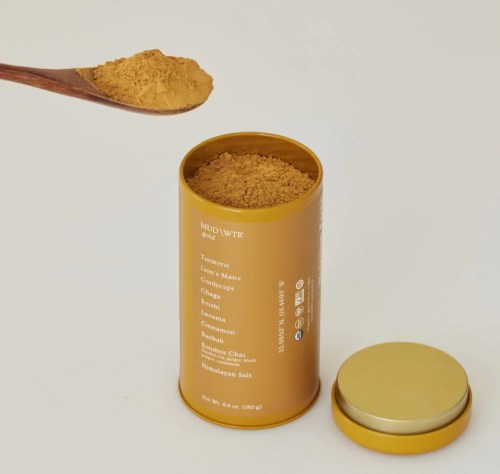
Mud/Wtr, Balance Turmeric — $50.00
Turmeric is an anti-inflammatory ingredient known to boost the immune system, reduce stress, and enhance memory and focus. Incorporating it into every meal can be difficult, though. That’s why Stangland loves the Turmeric MUD/WTR—a coffee alternative.
“I love this superfood powder because it has the anti-inflammatory turmeric ingredient along with a blend of functional, adaptogenic mushrooms, including chaga, reishi, and cordyceps” she exclaims. “It is an immune boosting, brain optimizer that is great for any person’s routine.”
Pro Tip: Turn your Turmeric MUD/WTR into a tasty fall-friendly tea by mixing it with hot water and topping it off with a dash of cinnamon, per Stangland’s suggestion.
Pros:
- Blended with functional mushrooms to boost brain health, mood, and more
- Supports multiple body functions
- Organic, vegan, and non-GMO
Pros:
- Expensive
- Requires a lot of whisking, otherwise gets chunky
Sign up for the Well+Good SHOP Newsletter
Get exclusive deals on wellness, beauty, fitness, and food products that have been hand-picked by our editors.
Got it, you've been added to our email list.







